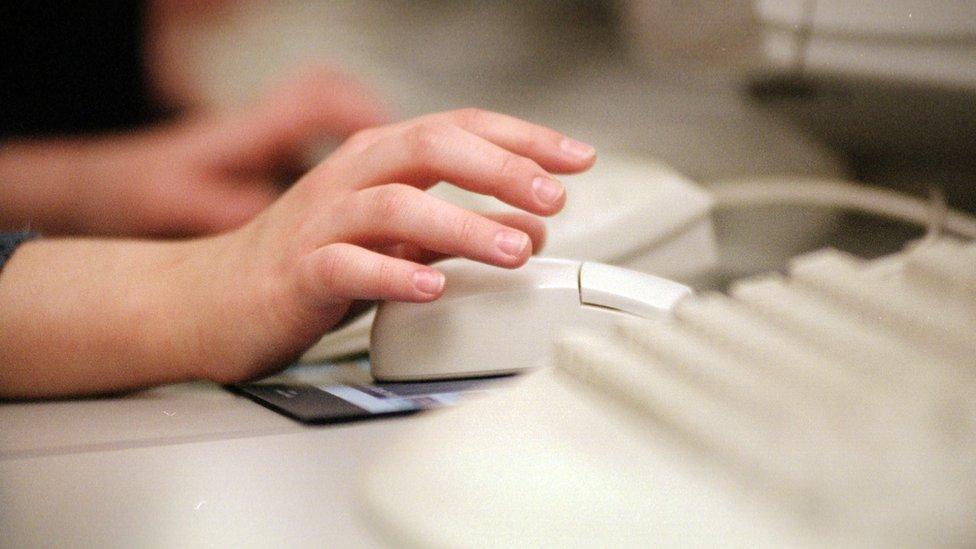Maths strugglers 'may have dyscalculia'
- Published
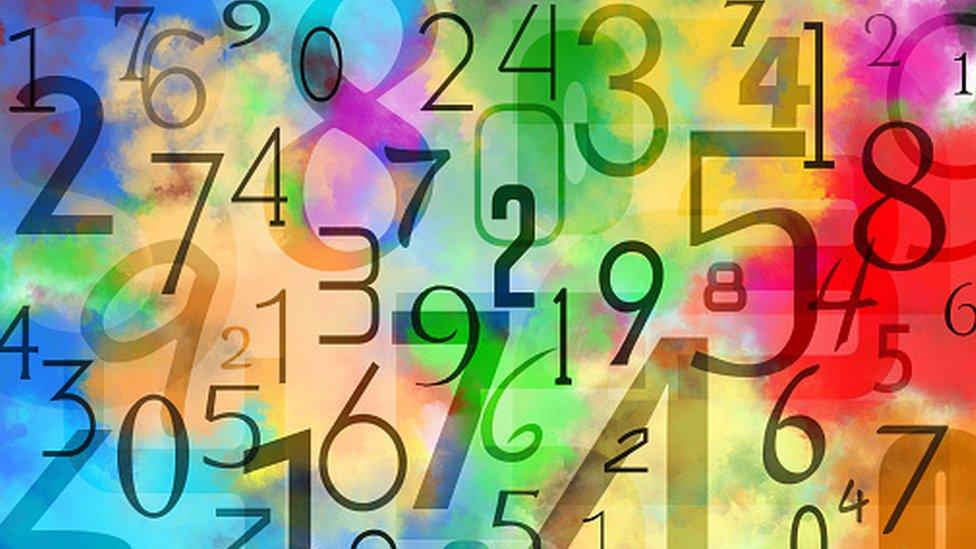
Dyscalculia is related to dyslexia, but affects numbers instead of words
Pupils who struggle with maths may be suffering from an undiagnosed condition, new research suggests.
The Queen's University study found about one in 20 Northern Ireland primary school pupils had symptoms of dyscalculia.
Dyscalculia is a learning disorder characterised by struggles with arithmetic.
The study tracked the maths performance of 2,421 primary school children over a number of school years.
Only one of the children had a formal diagnosis of dyscalculia, but the researchers identified 112 others likely to have the condition.
It is related to dyslexia, but affects numbers instead of words.
Dr Kinga Morsanyi from the School of Psychology at Queen's said there were a number of symptoms of dyscalculia.
"For example, children who really struggle with basic arithmetic - addition, subtraction - or young children who continue to use their fingers for counting," she said.
"We found in a related study that these children often have difficulties in other contexts such as remembering how to get to a place, remembering the route and where you turn right or left."
"So it can be a bit more general than just mathematics, but the main focus of the diagnosis is on basic mathematic skills."
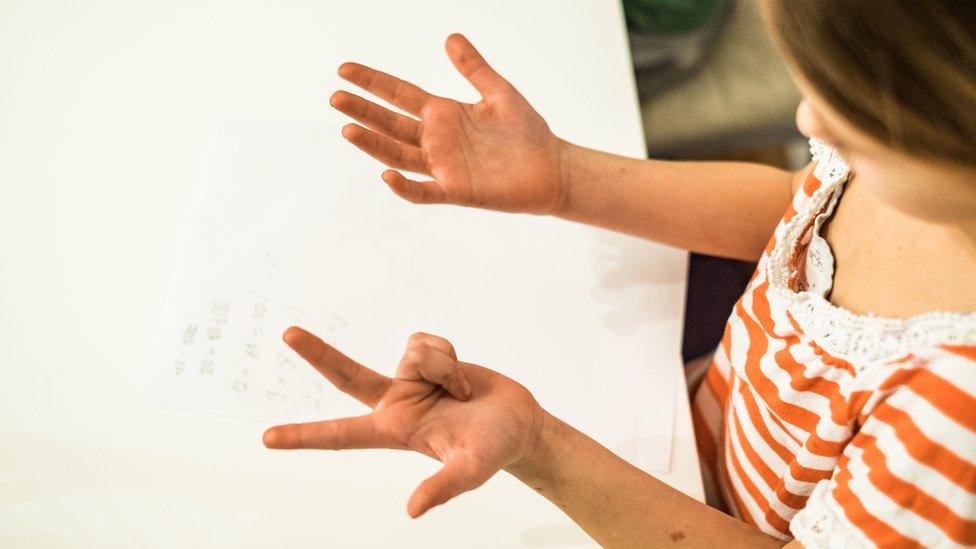
Children who continue to use their fingers for counting may have dyscalculia
But is it not just the case that these children are bad at maths?
Dr Morsanyi said that dyscalculia was much more than that.
"What we are talking about is the extreme end of not being good at maths," she said.
"It is when you really struggle with basic things."
Dyscalculia can also lead to people struggling to tell the time, work out prices in shops or how fast something is going.
Of the 2,421 children in the Queen's study, 108 had received an official diagnosis of dyslexia, but just one child had officially been diagnosed with dyscalculia prior to the research.
Dr Morsanyi said that while dyslexia is widely recognised and help is available to those who have it, there is little awareness of dyscalculia.
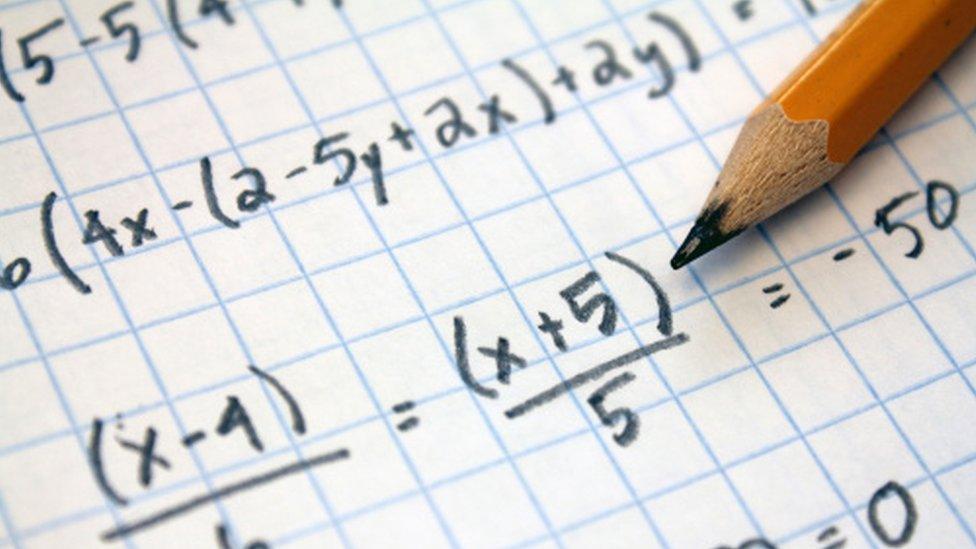
Dr Kinga Morsanyi said dyscalculia is about more than just having difficulties with maths
"If a child cannot read text or cannot interpret what they are reading, the parents would probably be worried," she said.
"If the child struggles with maths, they may say 'I'm not so good so it's normal for our family'.
"The point is that people ignore maths difficulties and this can have serious consequences later.
"A child with dyslexia is more than 100 times as likely to receive an official diagnosis and educational support, and even if a child is diagnosed with dyscalculia, there is no standard process in place to support them."
- Published18 October 2017

- Published23 August 2018
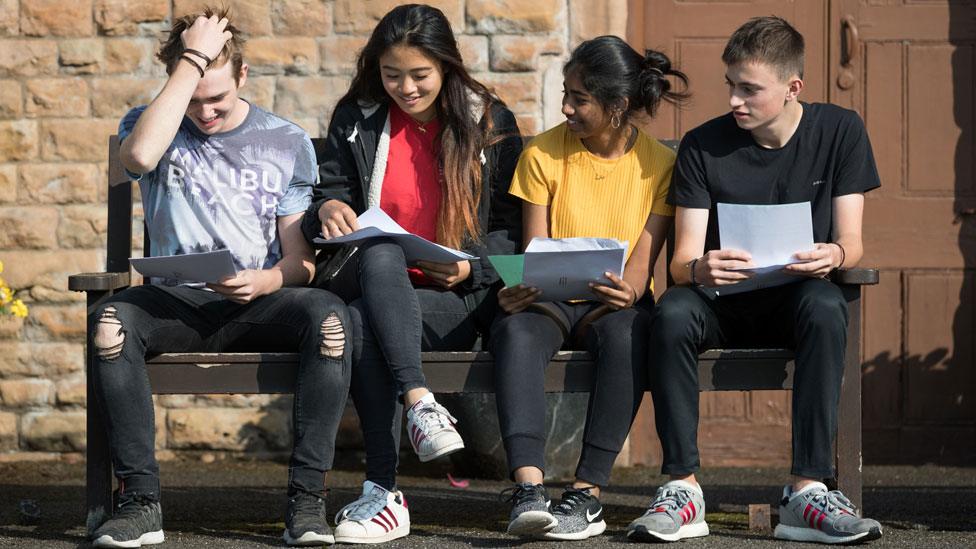
- Published13 November 2017
